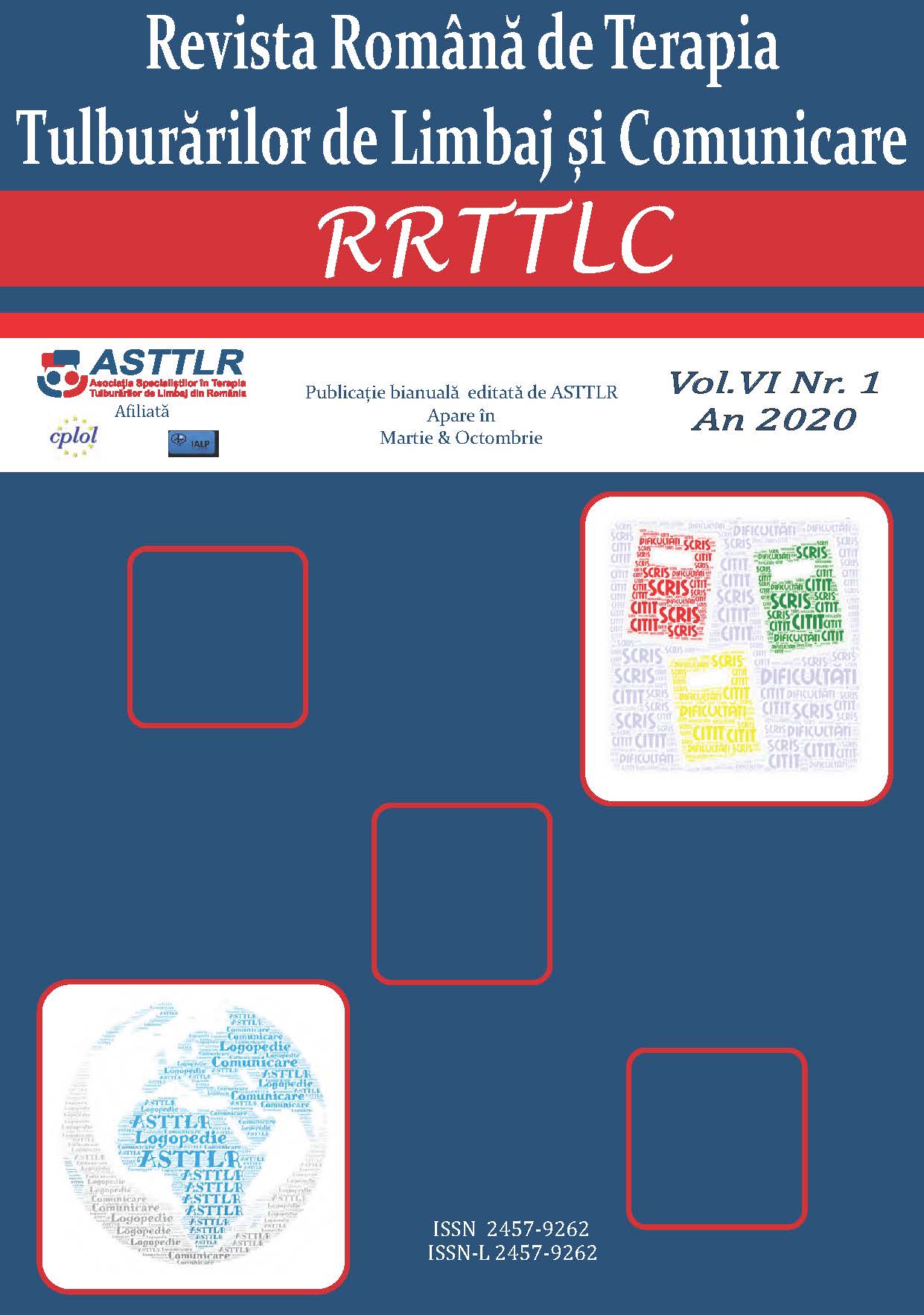Strategii de dezvoltare a memoriei verbale în contextul dizabilității intelectuale ușoare
Strategies for developing verbal memory in the context of mild intellectual disability
Author(s): Diana SuciuSubject(s): Educational Psychology, Cognitive Psychology, Developmental Psychology, Inclusive Education / Inclusion
Published by: Asociația Specialiștilor în Terapia Tulburărilor de Limbaj din România
Keywords: intellectual disability; memory; verbal memory; verbal memory strategies; short term memory;
Summary/Abstract: Cognitive deficits on the level of memory are noticed in a variety of childhood disorders, directly correlatedto a brain injury (a trauma or a celebrovascular accident/ stroke), or to a genetic anomaly which lend tothe alteration of brain development. This paper presents the development of the verbal memory in thecontext of the intellectual disability, by stimulating the short-term memory, taking into account that thememory of the children with intellectual disability is impaired, compared to normal children of the sameage, or of younger age. The training of verbal memory implies the involvement of students in tasks ofevocation of words, verbal items or memory exercises based on language, reflecting the ability ofmemorizing actively some information for a short period of time, involving the three components of theshort-term verbal memory: capacity, duration and coding.Training the memory involves mnemonicstrategies (associations), visual strategies (drawings, graphic representations), verbal memory strategies(stories, rhymes) and metacognitive strategies (the awareness of the process). Repetition represents themost useful method for the assimilation of new information. Combining repetition strategies with storycreation leads to the development of the working verbal memory and performance in the classroom tasks
Journal: Revista Română de Terapia Tulburărilor de Limbaj şi Comunicare
- Issue Year: VI/2020
- Issue No: 1
- Page Range: 66-77
- Page Count: 12
- Language: English, Romanian

